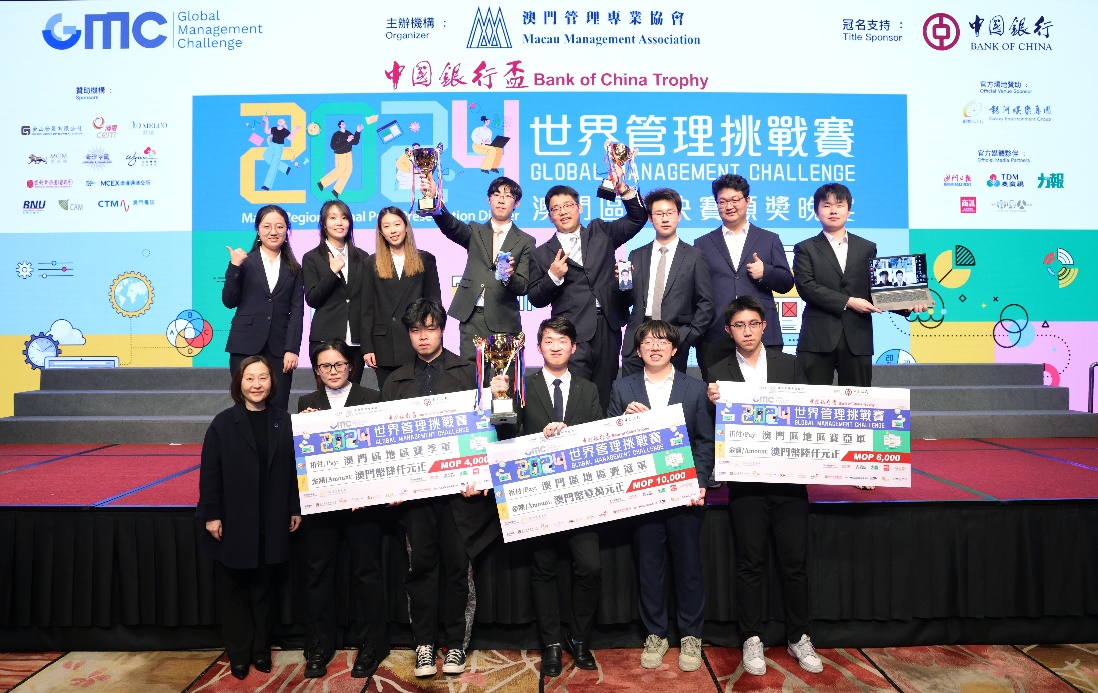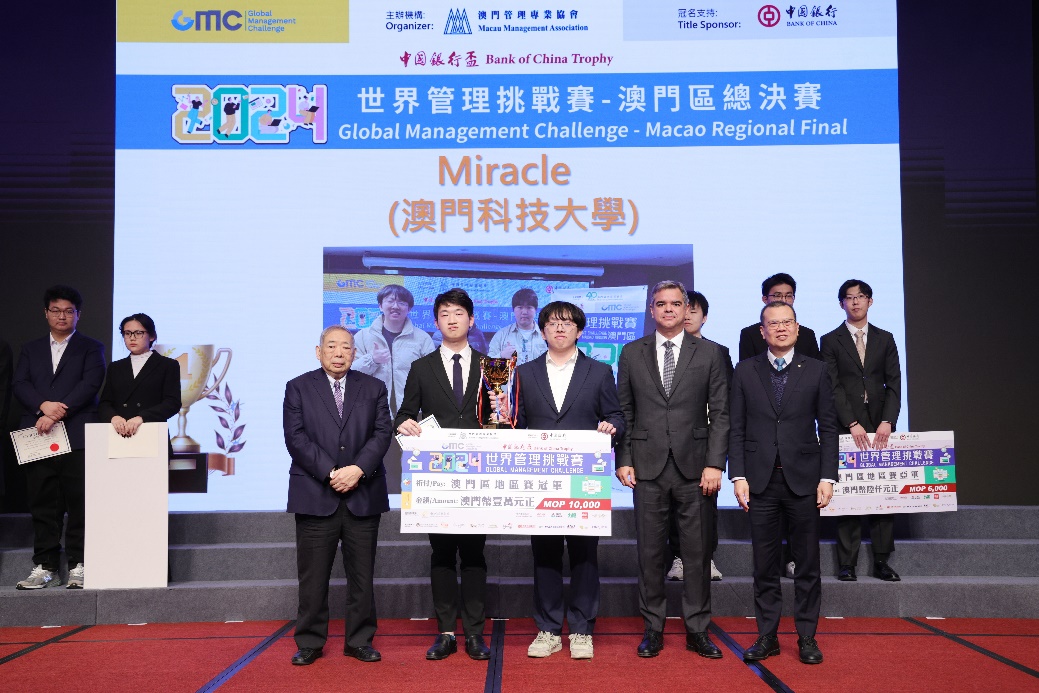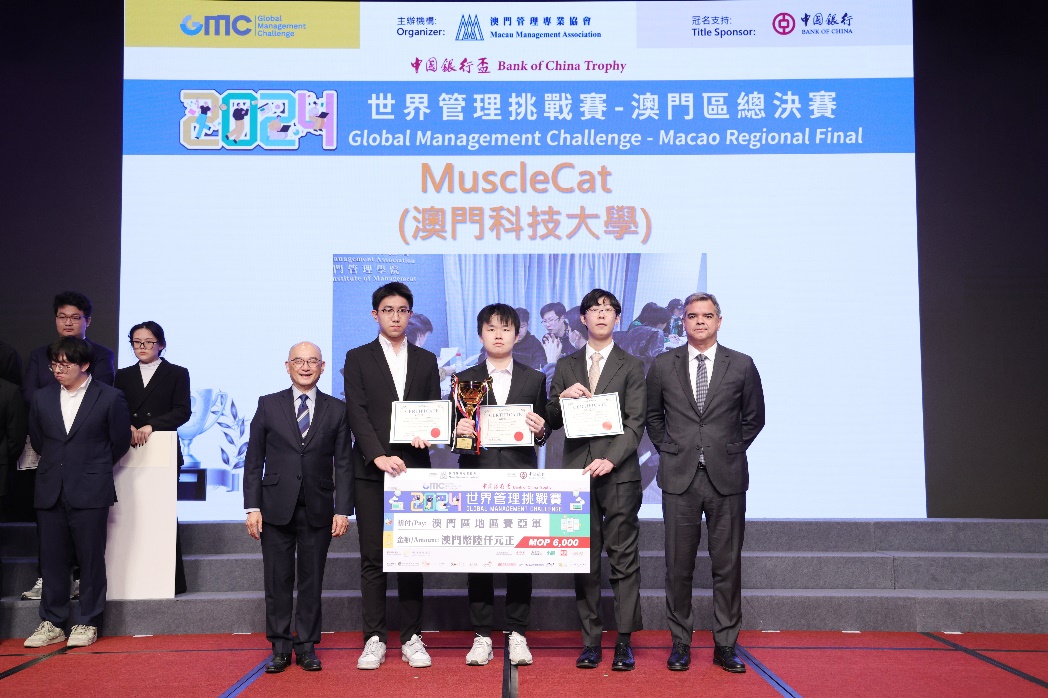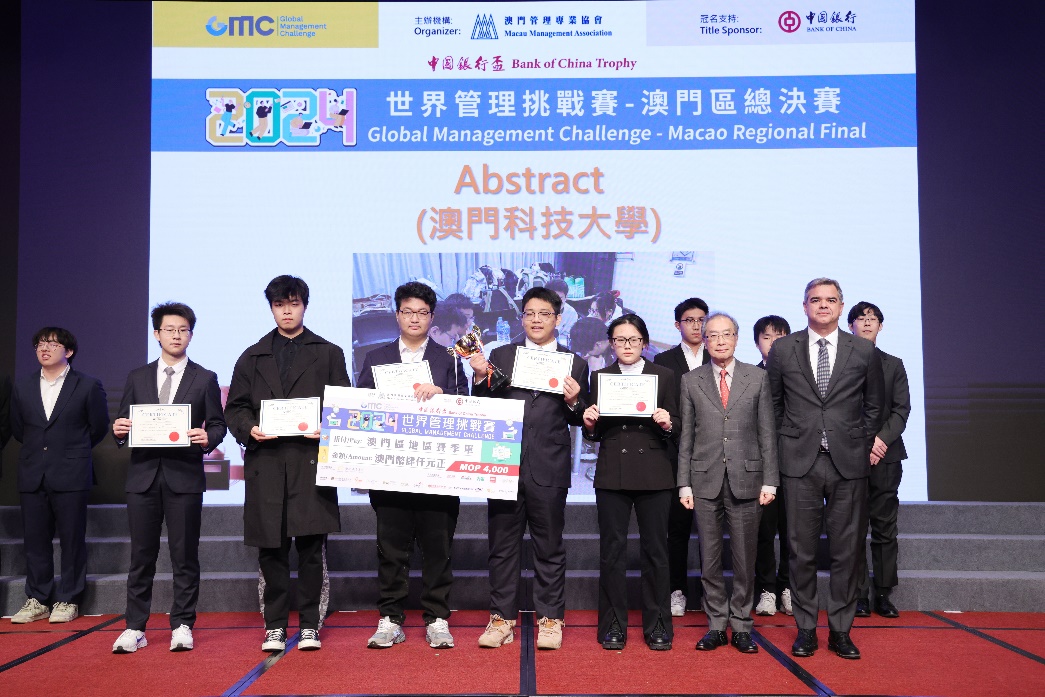Organized by Macau Management Association (MMA), the award ceremony for the “Bank of China Trophy” Global Management Challenge (GMC) 2024 – Macao Regional Final was grandly held on January 10 at the StarWorld Hotel. The School of Business (MSB) places great importance on the competition. Multiple presentations and training activities were arranged in preparation. Notably, several outstanding alumni, including former champion Gu Yilin, were invited to share their valuable experiences and insights with the participating teams. Under the meticulous guidance of Gu Yilin, the participating teams underwent over three months of rigorous preparation and ultimately stood out in the exciting competition. The teams achieved remarkable success by winning the championship, first runner-up, and second runner-up positions. The champion team “Miracle” will represent Macau in the international final this year, competing with teams from all over the world for the international championship.

Group photo of MUST winning teams with Dean Sheng Ni (front row, first from left)
The GMC this year continued to attract talents from various sectors to participate actively, with a total of 89 teams, including 85 student teams and 4 corporate and mixed teams. 8 teams entered to the final after the 1st round and 2nd round contests. The Macau final followed the rules of the international final, requiring participating teams to strive for the best operational performance in the same business environment. Contestants are required to quickly analyze historical data, model on-site, as well as develop related strategies regarding market, production and procurement, human resource management, and financial decisions.
The champion team “Miracle” consists of Wang Ziyu and Zhang Chi, undergraduate students from MSB Business Administration program majoring in Business Analysis; and Wu Chenxi, undergraduate student from Applied Economics program. Team leader Wang Ziyu stated that this competition enabled him to recognize the importance of practice and application of knowledge. During the competition, the team had to continuously adjust and refine their strategies based on the opponents’ decisions, which not only tested their professional knowledge but also evaluated their market judgment, on-the-spot response, and teamwork abilities.

Group photo of the champion team “Miracle” with award presenters
Liu Zijian, leader of the 1st runner-up team “MuscleCat” and an undergraduate student from MSB Applied Economics program, stated that this competition not only tested the team’s corporate management abilities, but also involved strategic interactions between teams. While familiarizing themselves with the company’s situation and setting up operational indicators, the team actively formulated strategies: borrowing to expand production in the early stage, then selling at low profit margins with high volume to squeeze the market in the midterm, and finally increasing the price-to-book ratio and net assets, as a way to stand out among many companies.

Group photo of the 1st runner-up team “MuscleCat” with award presenters
He Peijian, leader of the 2nd runner-up team “Abstract” and an undergraduate student from MSB Business Administration program, said that through this competition, team members not only exercised their abilities to look at the big picture, think systematically, and make sound decisions, but also enhanced their application of professional knowledge and innovation capabilities, while strengthening their sense of teamwork.

Group photo of the 2nd runner-up team “Abstract” with award presenters
In addition, Sun Jiacan, leader of the fifth-place team “SavageStorm” and an undergraduate student from MSB Business Administration program, believed that although the team did not make it into the top three in the final, the team’s greatest achievement was to gain new knowledge, broaden their professional horizon and acquire valuable practical experience.
GMC is a simulation business management competition officially certified by the European Foundation for Management Development (EFMD), spanning five continents with a history of over twenty years. This competition simulates scenarios involving internal cooperation between departments of a company, as well as competition with external entities. Contestants can learn how to manage and operate a publicly listed company within this virtual business environment. Through the competition, they can effectively master the overall operational model of a business, enhance their understanding and knowledge of corporate management. Competing teams must make scientifically sound decisions based on the current situation, integrating knowledge from finance, management, operations, etc.
(Contributed and reviewed by Professor Tang Huajun, format reviewed by Helen Kam)





